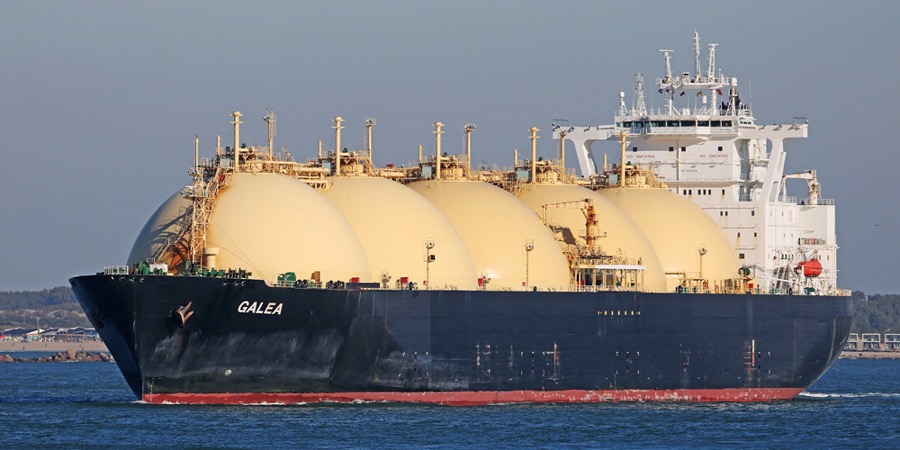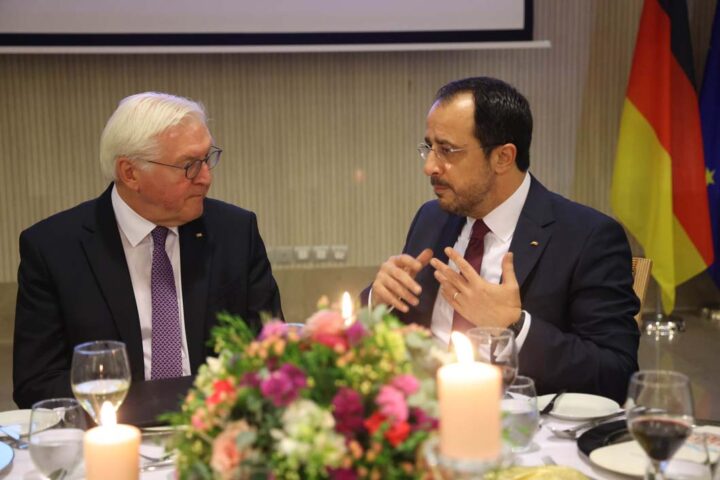The European Commission thinks the natural gas crisis has gone away.
However, many energy-intensive companies have either closed or reduced production after being unable to cope with higher energy prices, especially as activity is down 20% from 2022.
Energy Commissioner Kadri Simson admits the EU faces a fundamental challenge to ensure energy independence and deliver on climate goals.
It’s time to shift our attention from targets and rules to what is needed to make things happen, she said.
Simson also said the EU has no green future without an upgraded power grid.
Electrifying the EU economy must be made easier, cheaper and quicker.
She added that there is a need to progress cross-border interconnectors where these still lag behind.
Eurostat said that EU dependence on Russian oil imports has fallen to 2.3% in two years and gas to 12.9%.
With high energy prices and industry struggling, EU power demand fell 5% year-on-year in the first half of 2023.
Fossil fuels’ share in the EU power mix is now at the lowest since records began.
Fossil fuels produced just 33% of the EU’s power in the first half of this year, the lowest share on record since 1990.
Coal use in the EU’s electricity mix plunged 23% in the first half of 2023.
Gas use was down 13%. Altogether, EU fossil fuel generation fell by 17%, nearly a fifth, in the first half of 2023.
The EU is clearly cutting them out.
Wind and solar continued their growth, with solar generation increasing by 13% and wind by 5%.
From January to June, 17 EU countries generated record shares of power from renewables, with Greece and Romania passing the 50% mark for the first time and Denmark and Portugal both breaking 75%.
And yet, electricity prices remain stubbornly high.
But power prices look set to plummet from 2026 due to an expected surge in renewable capacity that will substantially impact the EU market.
Over the last few months, the EC’s efforts to push climate laws have met resistance from rightwing politicians, farmers, industry and even consumers who fear that the cost of complying will be too much at a time of high inflation and industrial and economic problems.
Even France’s President Macron called for a pause in new green policies until existing rules are implemented.
He is concerned the EU is going to lose its industry.
At the same time, energy concerns spur German industrials to seek investments abroad.
Due to high energy costs, nearly a third of German industrial companies plan to boost production abroad rather than at home.
In Germany, less than 20% of surveyed companies say the energy transition has a positive effect – almost a third are considering or executing a production shift abroad.
Woodmac said that Europe’s importance as an LNG demand centre will fade in the long term as policymakers remain determined to move away from gas. Asia is retaking centre stage.
Following the successful launch of its joint natural gas purchasing initiative earlier this year, the EU is now looking to make the scheme permanent.
World exports
Persistently higher interest rates in major economies mean global growth will likely slow next year after outperforming expectations in 2023.
Following the meeting between Vladimir Putin and Recep Tayyip Erdogan this week, Russia and Turkey are close to establishing a new gas hub as Russia seeks alternative export routes for its natural gas.
Eni will invest $7.7 bln over the next four years, boosting its exploration and production plans and operations in Egypt, to help the country overcome its energy problems and gas shortages.
Egypt’s push to export natural gas to Europe is leading to rolling blackouts – gas shortages have left Egypt struggling to keep the lights on, while LNG exports have ground to a halt.
Following three-way talks in Cyprus, President Nikos Christodoulides, Israel’s President Benjamin Netanyahu and Greece’s PM Kyriakos Mitsotakis reaffirmed their commitment to reinforce their energy cooperation.
They reaffirmed their common interest in advancing the EuroAsia Interconnector and plans to export their natural gas to Europe through the EastMed pipeline, a pipeline to Cyprus, an LNG facility there, or both.
But they did not explain where the gas would come from. All Israeli gas is already committed to other projects.
In Cyprus, appraisal drilling of the Aphrodite gasfield in 2023 produced positive results, with reserves confirmed to be about 126 bcm.
Chevron submitted a development plan to export the gas by subsea pipeline to Shell’s existing, underutilised WDDM facilities in Egypt for treatment and export to the Egyptian gas system.
The government has rejected this because, it says, it would lead to lower gas recovery and less revenues for Cyprus. Negotiations are in progress.
Dr Charles Ellinas is Senior Fellow at the Global Energy Center, Atlantic Council
Tw: @CharlesEllinas










